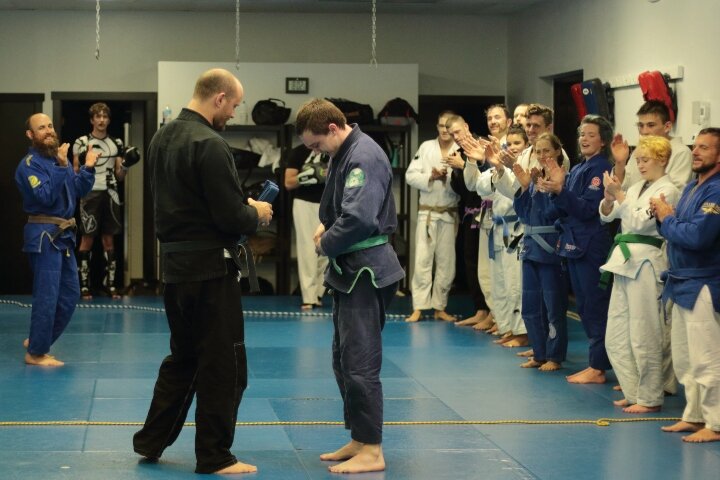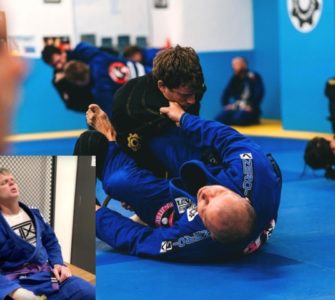Belt tests in Brazilian Jiu-Jitsu straddle a delicate balance between tradition, discipline, and practicality. While not as common as in some other martial arts, they do occur and serve a purpose in BJJ academies. They provide structure, ensuring that students and coaches are on the same page regarding expectations and curriculum. However, there lies a fundamental issue with the belt testing system in BJJ that can be encapsulated through a hypothetical yet common scenario.
The Dilemma of the Deserving Student
Consider a student, a purple belt with four stripes, teetering on the edge of brown belt proficiency. They exhibit skill, dedication, and understanding that surpass their current rank. The coach, recognizing their prowess, schedules them for a belt test on a specific date, with a fee attached to this testing process. Herein lies the crux of the problem: What happens if the student misses the test?
The Implications of Missing the Test
- Skill vs. Formality: The student’s skills are not in question; they are arguably at a brown belt level. However, due to circumstances, they cannot attend the test. Should their progression be stalled because they missed a formal procedure?
- Financial Barrier: The requirement to pay for the test adds another layer of complexity. Financial constraints might prevent a deserving student from attending the test, which raises questions about the fairness of tying belt progression to monetary payments.
- Life’s Unpredictabilities: Life is unpredictable. A student might miss a test due to personal, professional, or health reasons. It seems unjust to penalize someone’s martial arts journey due to factors outside their control.
The Problem at Its Core
The central issue is the rigid structure of belt testing in a discipline that often celebrates fluidity and adaptability. By strictly adhering to a scheduled test and fee, the system inadvertently overlooks the very essence of BJJ – that skill, knowledge, and improvement are continuous and not always linear or conforming to set schedules.
Possible Solutions
- Flexible Testing Models: Academies could adopt more flexible testing models, where coaches assess students continually and promote them when they are ready, rather than relying solely on formal tests.
- Exception Handling: Coaches could establish policies to handle exceptions, allowing for alternative assessment methods if a student cannot attend a scheduled test.
- Decoupling Fees from Tests: Removing the financial barrier from belt testing could make the process more equitable and focused on skill rather than the ability to pay.
In BJJ, the journey and the skills acquired along the way are more important than the belt itself. While belt tests have their merits, the system must be flexible enough to account for individual circumstances and maintain the integrity of skill assessment. After all, a student’s ability is demonstrated on the mat, in their techniques and understanding of BJJ, and not merely by their presence in a test or their ability to pay for it.

















